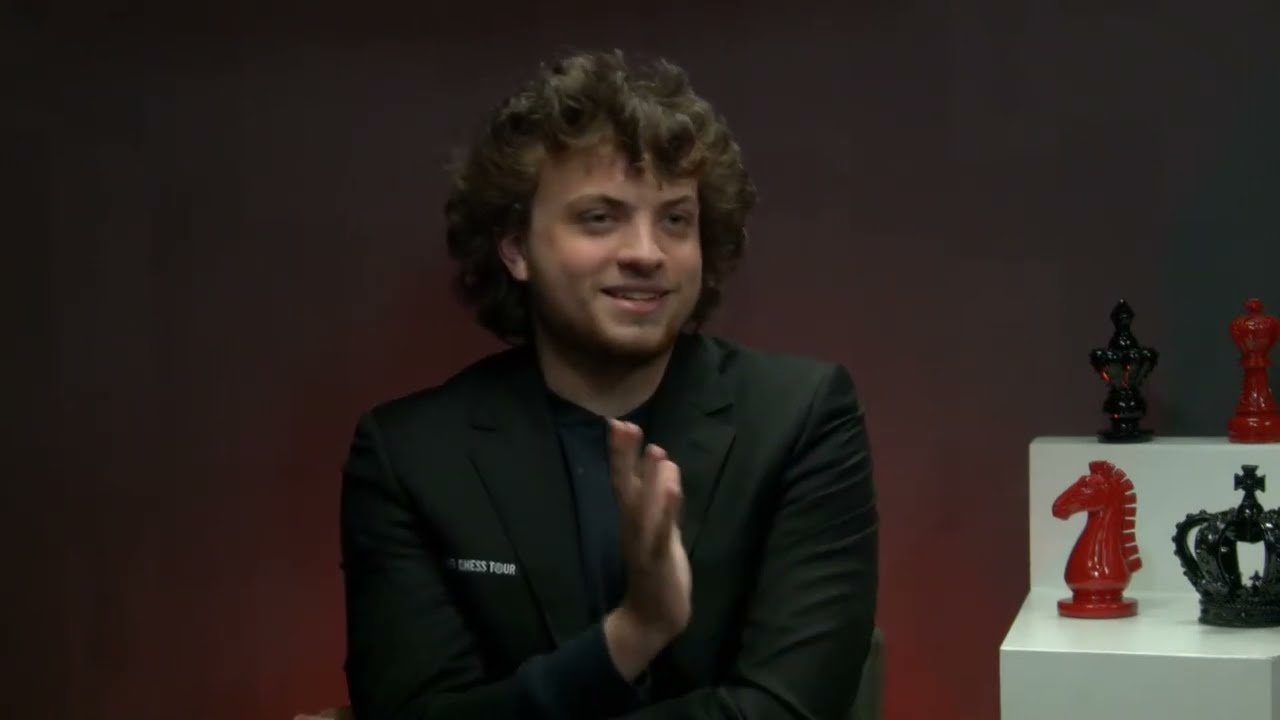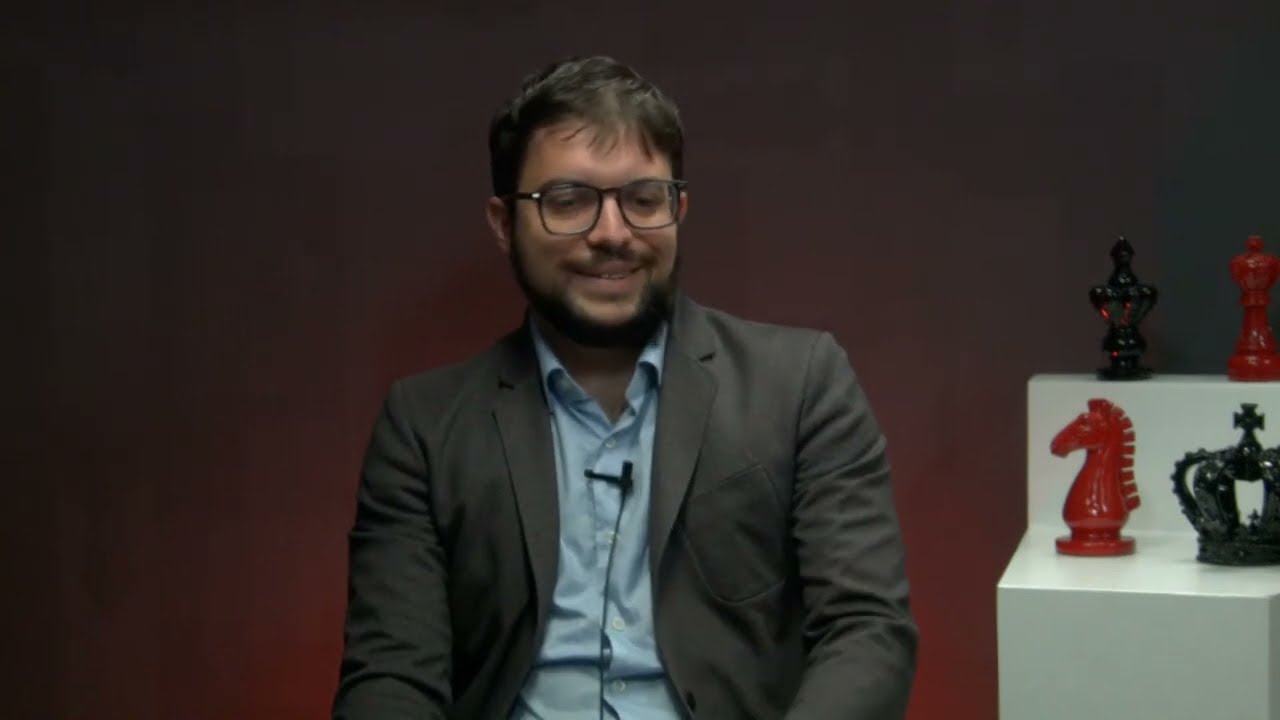I believe a lot of you will have seen the crazy events in St Louis over the last 48 hours. I felt an obligation to share facts and thoughts with you, and then allow you to make up your own mind.
The background is that Magnus Carlsen lost a not-too spectacular game against Hans Niemann on Sunday. Magnus is the GOAT, Hans is 19 and rated just under 2700. With the win, he passed the mark for the first time.
Monday Magnus did not show up to the game and released a tweet with a Mourinho comment of “if I say what I want to say, I will be in big trouble – and I don’t want to be in big trouble.” Quickly the team of internet detectives combined this and increased anti-cheating
First of all, my personal relationship with Hans Niemann: I met him at a camp in St Louis in 2019. He was about 2450 and clearly a socially awkward character that had a feeling that all eyes were on him all the time. But he was smart, funny, and likeable. It was a good camp and we had some laughs. At the time he was talking about quitting chess a lot, but it was clear that the issue was he cared so much and had not found a mental position that worked for him.
We were sort of in contact on and off over the next two years. He was 2500 18 months ago and playing all the time. His attitude had changed. Instead of being scared of admitting that he wanted to be great, he now gave it his all. Traveling from event to event. Playing good games, bad games. Uncompromising. His rating increased a lot over the summer. Over 100 points. He reached 2630 or so by the autumn when he came to visit in Glasgow. At that time, he had also joined our academy, although I doubt he ever got around to using it much (and did not renew in 2022).
Our training session was a week. It was meant to be a camp, but no one else could make it. Hans was difficult to train. I tried to do calculation and endgame training with him (he had requested endgame training). At first, I showed exercises from recent games (last 18 months) that I really liked. He knew them ALL. I was astonished by his memory. I was astonished by his intuition. Both were off the charts for what I have seen training Shankland, Gelfand, and other 2600+ and a few 2700s.
There were obvious big holes in his chess, but to be honest, I see big holes in the game of Giri, Aronian, Mamedyarov, Firouzja, and other top players. When I get a 2650 student, I usually try to find out what part of their game is at a much lower level. There is always some area of chess where they are just blank. Maybe they cannot really visualise. They don’t know how to make simple decisions. They cannot calculate a line till the end. All three examples of real 2650 players I have worked with.
Hans’s confidence in his own intuition and his surprise when it was wrong was a recurring theme of the week he was here. Another was that whenever I came to his room, he was looking at chess. Playing through ALL games from all tournaments on Follow chess.
I have seen nothing out of the ordinary in the last two days. Hans playing reasonably well against opponents that are not playing that well. His big confidence. His awkwardness in front of the camera. His highly intuitive way of thinking. His lack of accuracy in variations. Him blundering when suggesting things, he thinks he might have looked at.
I also did not see anything out of the ordinary from Carlsen. Entitlement. Lack of responsibility. Lack of accountability. A Norwegian troll army ready to defame a man who only 400 days ago was a minor. Carlsen has acted badly in many situations after losing in the past. In that way, he reminds me of Federer, who was a badly behaved teenager. Become the best player in the world and behaved excellently. Then started losing to Djokovic and needed a period to adjust to reality.
People say that Carlsen does not behave badly when he is losing in his Meltwater Tour to Praggnanandhaa. It is partly because it is like Federer losing a set. It is partly because Praggnanandhaa is deferential to Magnus. Hans is not. Hans wants to kill the king. Wants to take the throne. He has no remorse over this at all.
Some people on Twitter is saying that Nakamura and Nepomniachtchi are backing up these accusations of cheating. I watched the Nakamura YouTube video and found it to be ridiculous, but also void of an actual accusation of cheating. When Nakamura is saying that no 2700 calculates this poorly, he is flat out wrong. I can also show positional mistakes from Nakamura that undermines the credibility of the playing strength of the former no. 2. Mistakes that Hans would simply not believe a GM had made. Because they are his strengths and Nakamura’s weaknesses.
There are many GMs who are suspicious. There are also many GMs who think this is ridiculous. There are also many GMs that are without real skills outside playing chess in exactly one way.
” This guy doesn’t look like cheater doesn’t behave like cheater and doesn’t play like cheater. Altogether this doesn’t provide 100% guarantee but still…” – Alexander Khalifman
“…It was more than impressive.” – Ian Nepomniachtchi
Comments about the preparation for the game with Carlsen were bizarre. Hans gave the reason he anticipated a g3-line. Which for me is already reason enough to check various g3-lines. He showed additional moves he remembered from his preparation. Sure, one of them was a blunder and his memory was inaccurate regarding the actual evaluation. The narrative for this being indications of cheating must include an explanation of how the game reference came in. First, it was that there was no such game. Then it was some other nonsense.
We all know that it is possible to send signals of moves in a highly sophisticated operation. It requires technology. It requires an accomplice. It requires a high level of risk-taking and stupidity. But what it does not offer is a reasonable way for a game reference to be conveyed. This is a sign of preparation.
So far, what we have seen is a case of a young man overperforming and being awkward. Especially, in the situation where he is asked about the game with Firouzja. Trying to point out that he looked and felt awkward in the situation created by Carlsen’s withdrawal.
My main argument is that it always has to be about the moves. The moves were nothing special. The thinking was fully consistent with what I have seen when discussing chess with Hans.
“Magnus behaved like an entitled brat” is at least an equally reasonable theory. This is not new behaviour. Those saying he has never accused anyone of cheating, never withdrawn and never behaved badly (as if this alone would be evidence of anything), are simply underinformed. I don’t want to be a part of a smear against anyone, but to me, it is incredible that all just assume that Carlsen is a good guy. And this after 20 years of seeing how bad a loser can be.
There are people online who say that “Niemann almost definitely cheated” based on just utter rubbish. From those with little knowledge or competence, you will get the greatest certainty. It is called Dunning-Kruger.
Obviously, I do not have certainty that Hans did not cheat. Nor do I have certainty that Carlsen has never cheated. It is reasonably well established that Hans cheated online at some point. This is simply a different thing. Compare it to cheating in Homework Club. There are times when people have cheated on their homework and I ignore it. Because it is not a big thing. It does not make me believe that they will start on advanced Mission Impossible-style careers as advanced cheaters. It is of course possible to do it, but it requires advanced behaviour to beat top tournament security far beyond what we have seen from people cheating, which is usually compression socks and phones in the toilet, to point to a famous case.
What I have seen when people are cheating, is a loss of confidence in themselves and an acceleration in the cheating behaviour. And when accused, they usually get angry and go on the offensive. The innocent are confused and saddened.
In this case, I have not seen moves or behaviour that are out of character for Hans, nor have I seen anything that looks like computer-influence moves. I have not seen behaviour typical of losers.
What I have seen is the nasty side of the Internet and poor behaviour from various individuals, who are totally within my experience of them as human beings. You may disagree with my presumptions of what happened here, but the simplest explanation is often the right one. Magnus could not accept that he could lose to someone he thinks of as “a joke” and came up with a different explanation. And the internet is full of his fans, happy to make meat out of it and they all know that Hans’ hair works as an antenna. And they know it with certainty.
Jacob Aagaard




 , not serious stat! with that one may draw many conclusion…
, not serious stat! with that one may draw many conclusion…